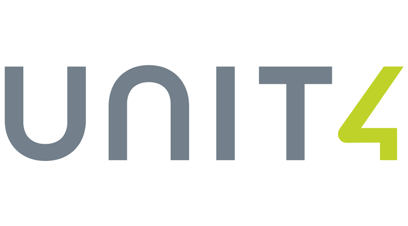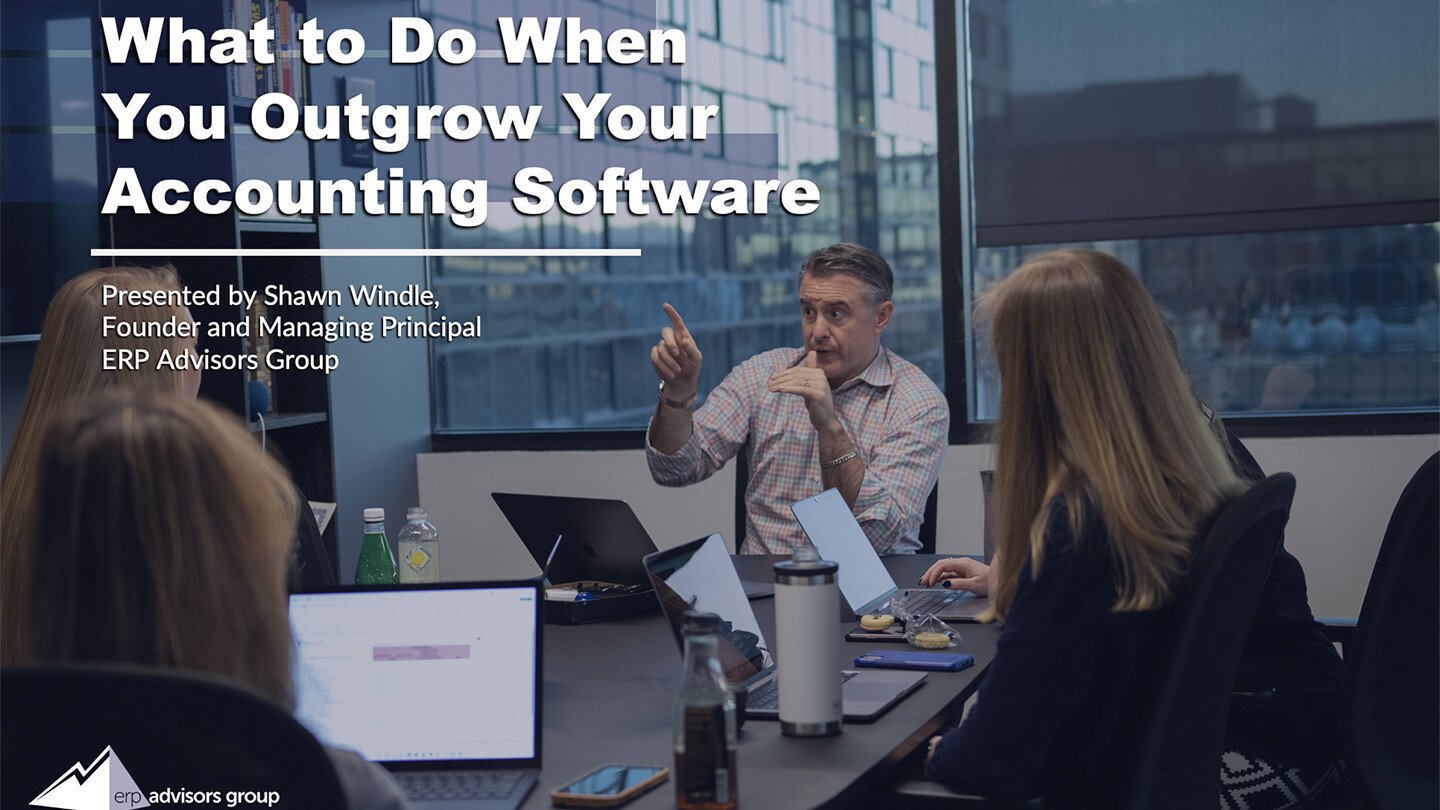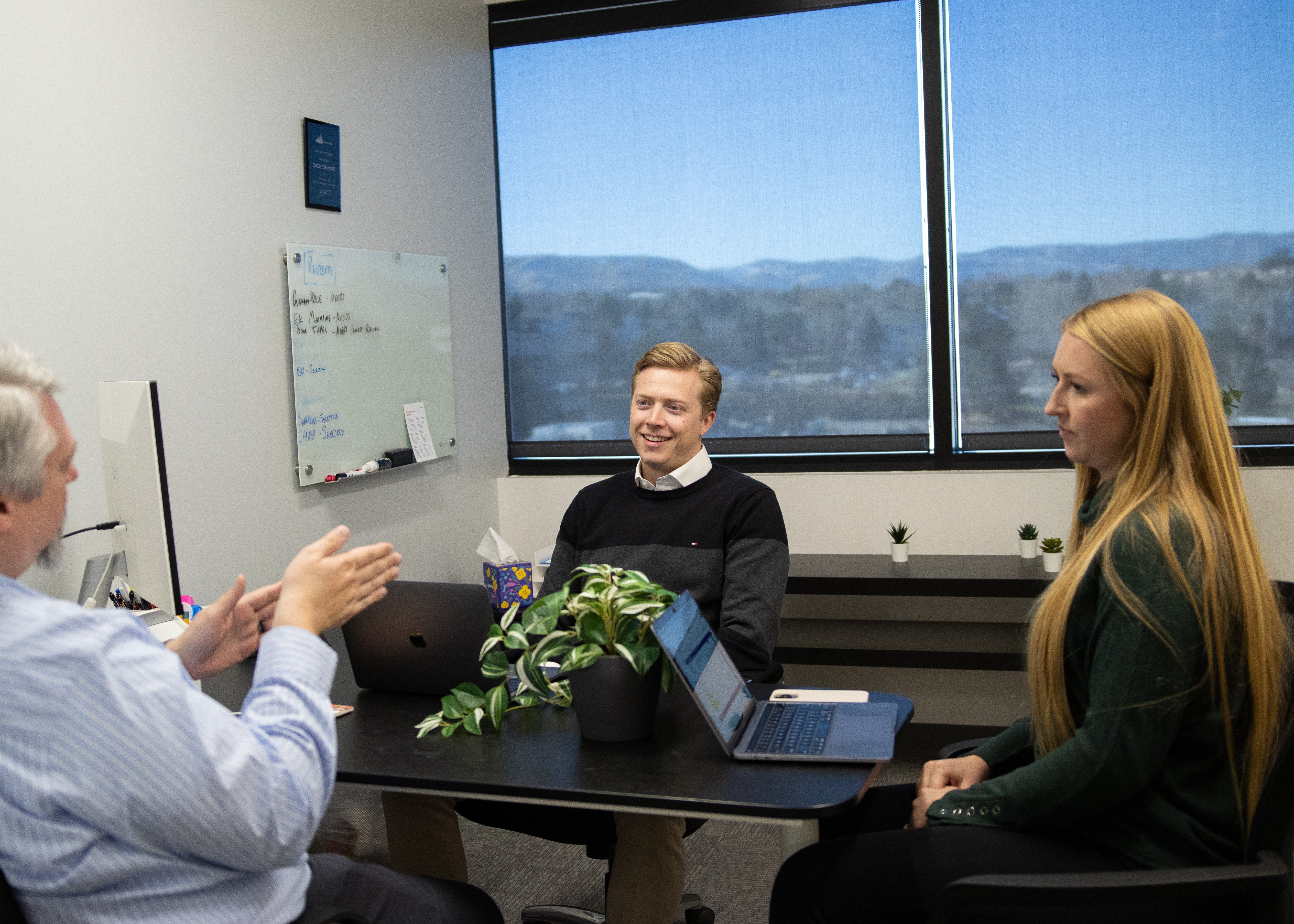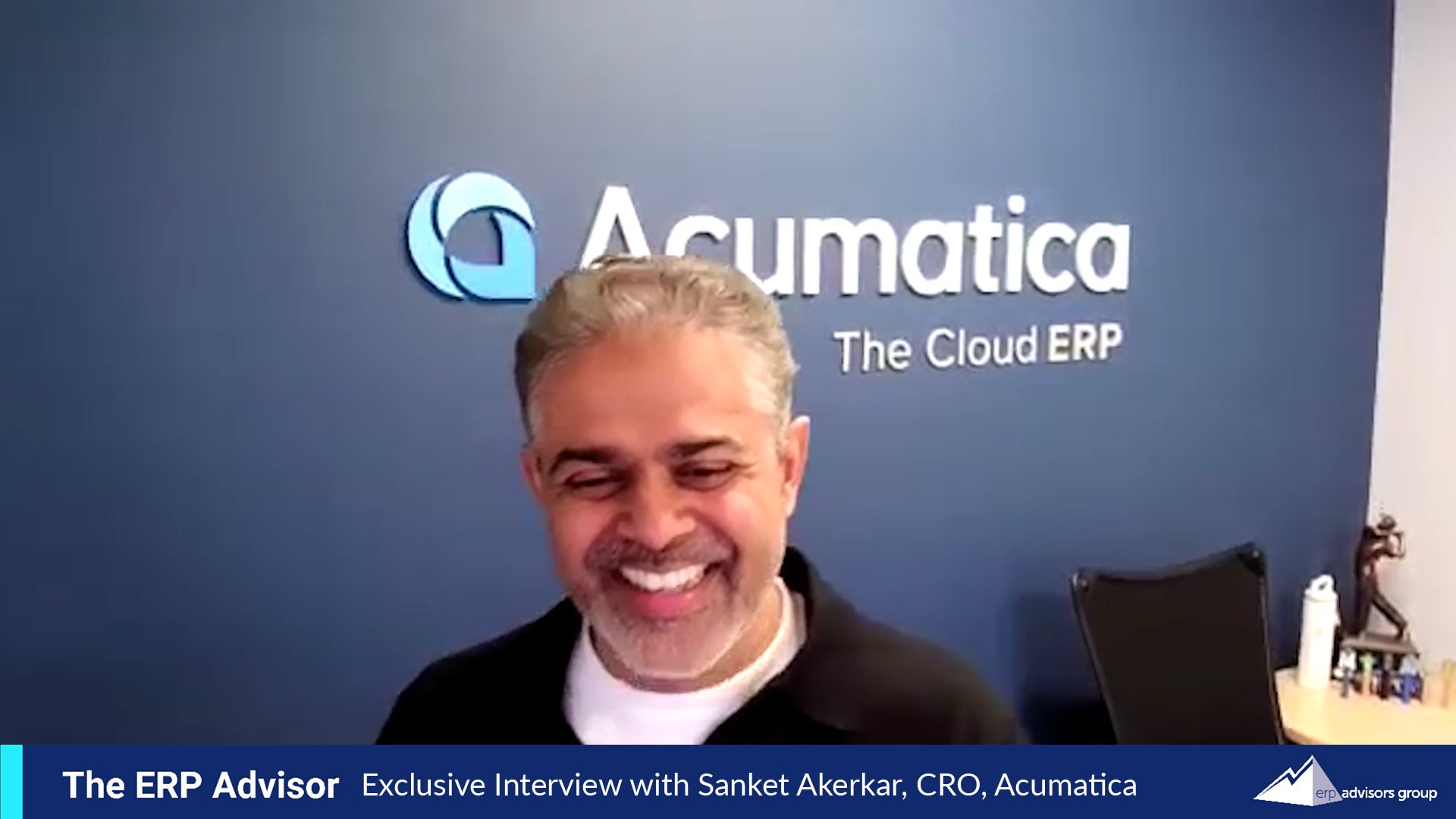
Founded in the western Netherlands, Unit4 developed next-generation enterprise software to meet the ever-expanding needs of people-centric businesses. Unit4’s offerings put significant focus on the person behind the production with its People Experience Suite, which includes financial management, accounting, ERP, FP&A, HCM, and talent management modules. In this episode of The ERP Advisor, we will take an unrestricted dive into Unit4 to display its features and functionalities within the ERP space.
Unit4
Unit4’s 2,600 employees service customers on a global scale, equating to approximately $379.7 million in revenue per year. Private equity firm TA Associates acquired Unit4 in March 2021. The infusion of capital has enhanced Unit4’s expansion of a global partner ecosystem and deeper people investment in core and growth markets.
What Does Unit4 Sell?
The people-centric software vendor Unit4 provides a specialized focus in people-based services industries including professional services, public sector, nonprofit and higher education. Unit4’s most prevalent solutions include Enterprise Resource Planning, Financial Planning & Analysis, Human Capital Management, Industry Mesh, and the Unit4 People Experience Suite.
Unit4’s ERP is built on a public cloud platform, providing customers flexibility and ease of use. Unit4 prides itself on focusing its solutions to provide value to the people within its customer’s businesses, with the main goal of its ERP to provide greater visibility across an enterprise. ERP modules include financial management, project management, procurement management, core human resources & payroll, and tools & reporting.
Unit4 offers its own Financial Planning & Analysis solution. Unit4 Financial Planning & Analysis provides feature functionality through integrated financial planning, reporting, analysis & dashboarding, people planning & analytics, financial consolidation, and IFRS 16. Unit4’s FP&A solution uniquely tackles the issues businesses face when it comes to IFRS regulations by building in functionality to simplify processes associated with leasing contracts impact.
Unit4 has put significant resources into the development of its Human Capital Management (HCM) Software. Unit4’s HCM is designed to simplify payroll processes, increase productivity, and grow an organization’s workforce. It provides feature/functionality for core human resources, payroll, talent management, reporting & analytics, and compensation planning.
Unit4 Industry Mesh is a unique offering, introduced to the Unit4 product lineup in January of 2022. Industry Mesh provides customers with a multi-tenant industry cloud service that equips enterprises with industry-specific ERP and other packaged integrations, building upon the ERPx platform. Mesh Industry also provides pre-built data flows and Integrations-as-a-Service (IaaS).
Finally, Unit4 empowers customers through the Unit4 People Experience Suite. Unit4 defines this offering as, “a micro-services-based SaaS architecture,” to deliver greater experiences for the people within organizations. This Suite encompasses Enterprise Resource Planning, Financial Planning & Analysis, and Human Capital Management, all of which can be integrated for specialized functionality.
What Kind of Partnership Ecosystem Does Unit4 Have?
Unit4 has Go-to-Market (GTM) Partners under a Global Partner Framework. With tools, support, and unique expertise, GTM partners work to assist Unit4 customers in realizing the value of their software quickly. These partners act as guides to Unit4 customers, assisting them with the software implementation process.
Developer4U is Unit4’s developer program, designed to provide customers with innovative solutions specifically built to enhance the offerings of Unit4’s platform. Unit4 provides special support to members of the Developer4U program through development environments, extension kit training, and support to develop applications. These empowered development partners are then enabled to deliver innovative solutions.
Why Does Unit4 Win Over Their Competitors?
While Unit4 continues to establish itself in the US ERP market, it has already left its mark in Europe, beating out the competition and winning deals in the ERP space.
Unit4 wins deals for services companies with complex international requirements, providing unique solutions for adapting to international language requirements, currencies, local business regulations, and international accounting standards that vary from country to country.
Unit4 has significantly narrowed its focus to deliver the greatest value within the markets that it knows and specializes in. Specialization enhances Unit4’s ability to deliver value.
Conclusion
Unit4’s global footprint gives it an edge over the competition, as people-centric companies around the world can find a solution to meet their unique, regional needs. As Unit4 expands its operations, it will continue to provide specialized, enhanced solutions to its customers, while also expanding into the United States market, as well as other markets around the world.
Announcer 1: This is The ERP Advisor.
Announcer 2: The ERP Advisor’s overview of Unit4.
Juliette: Hello, everyone. Thank you for joining us today. This summer, ERP Advisors Group is spotlighting the most prominent vendors in the ERP software market. Today, we will be discussing Unit 4’s offerings and providing key insights into our experiences working with them. Shawn Windle is my guest today. Shawn, thank you for joining me.
Shawn: Hello.
Juliette: So, Unit 4 has been around for quite a long time. It was established in the early 80s if I remember correctly from the research that was given to me. It's a large platform with a wide variety of offerings such as financial management, accounting, ERP, HCM, FP, and A just to name a few. Can you talk to us a little bit about Unit 4 and who they are and what they do?
Shawn: Sure, I definitely can. First off, you need to get some more guests, girl, because I'm like your only guest; you need some more friends, no *laugh*.
Juliette: You are the resident expert.
Shawn: Oh, my goodness.
Juliette: We wouldn't want anyone else.
Shawn: Well, thank you.
Juliette: For sure.
Shawn: That's really sweet of you. As we get into the fall season and everybody’s back from their holidays and vacation, we'll definitely have some more peeps, but this is great, and it's really been a good series. Hopefully, it’s helpful for everybody to understand these vendors. Unit 4 specifically is probably not a vendor a lot of people have heard of. So again, we're honest, we're open, we usually say really good things about our vendors; that's a little secret. These companies generate hundreds of billions of dollars every year. They're all different, and that's the spirit we're going to talk about I think with Unit 4, then I'm going to share some concepts on today.
So, you're spot on about the capability Unit 4 has, and it's interesting because the combination of financials, human resources management, FP and A together, is a nice little stack of software and is built from a common platform which is unusual. Some other vendors don't provide that; there are some that do. Even thinking of Workday, it's a little different, they purchased their FP and A solution. Now I have to go back and look a little bit deeper to see what Unit 4’s history was and where they may be picked up some of the apps. There was a major acquisition or integration they did with a company called Agresso several years ago, but you see this platform that's evolved and that's really the big offering of this organization is this combined stack.
From what we've seen, we think about Unit 4 from a people-centric business. Things like higher education, non-profit, professional services, the public sector, those are areas that really like the whole stack Unit 4 has to offer. And the other piece to mention about Unit 4 that's a little unique is they have a global presence and are headquartered in the UK. Sage of course is headquartered in the UK as well, but Unit 4 brings that more international vibe frankly to the solutions. And when we have a client that has a lot of international holdings they're not headquartered in the US.
Juliette: That's great.
Shawn: So, it's really good for that kind of international, global deployment an organization is looking for.
Juliette: Right, and you did touch on this, but I was going to ask you what industry Unit 4 is specifically a good fit for. And you mentioned nonprofits, can you talk to us a little bit about that?
Shawn: You bet. I think the key differentiator there is that every software vendor is a little bit different because of where they focus, but again Unit 4 is more in the people-centric businesses and organizations. So, government, nonprofit, education, or professional services types of projects, that's how we sort of think about the organization. It's good too because the focus on even say engineering, architecture, construction, professional services like management consulting, or advertising firms, the professional service projects go from a high-level vertical down to a sub-vertical; business professional services, those types of things.
Juliette: It’s more specialized.
Shawn: Yeah, more specialized in that particular area. Again, it’s really good for nonprofits. We've talked to Unit 4 about one of our clients that started locally, in Boulder actually, and kind of had a global presence. Since then, they’ve really increased their global presence and the Unit 4 platform is a really unique platform because it’s built for global focus. Again, a lot of other ERPs, the North American ERPs, are based on the way the Americans do it. Well, that's not the way the rest of the world does it, no matter what we think. Especially if we travel to France and try to talk without speaking in French. You’ve got to at least try. But when you're rolling out enterprise software, it really does need to be around not just the number or the date format--of course, that has to be localized--but also things like phrases such as trades payable, and instead of AP there're different phrases that different geos use. What we've seen is Unit 4 has that background and experience.
Juliette: Well, that's good to know. So, would that include currency, dates, and the terminology they use?
Shawn: Absolutely.
Juliette: I never thought of that.
Shawn: Oh my gosh. I mean, it's a whole thing, because you know the localization, it's called in enterprise software, is a lot of different factors. Its number formats, currencies, currency translation rates, the language of the user experience, it's totally different. If you have French versus German versus English versus Indian versus Chinese, there are so many languages that are going to come through and different things like that. That is one of the benefits of working with a more international-based ERP company is they're used to that, whereas other organizations might not necessarily because they're more North American based.
Juliette: Right, well, let me ask you this. Say the company is based in the United States but has different offices around the world with different languages, currencies, what have you, is Unit 4 able to adapt to each location, or is it strictly based on where the headquarters is?
Shawn: Good question.
Juliette: Does that make sense?
Shawn: It does. It makes perfect sense, and the answer is yes. Most of the ERP vendors, I don't know if we've really talked about this over the years, but it's important to know that most of the vendors will support localization; that's the generalization of requirements. We have a satellite company that's going to be all over, and we have in our RFI a whole section of requirements around localization. We're working with a German company right now, and when we put together a total cost of ownership, it not only needed to be in euros, but we also needed to use European formatting. Instead of a period, we use a comma, and instead of a comma, we use a period right like you have to replace that out. And most of the ERP systems will support that for sure. They do a really good job with that.
Most will do a really good job with translation. So, you open your screen for even a login, and it says certain things in English, that's fine for you and me, but for our Spanish-based resources, that's not right, it needs to be in Spanish. So, there're tools built into most ERPs to do the translation automatically. But here's the thing, this is the secret if most of your customers are North American based, the localization becomes a little bit of an “oh, by the way.” Yeah, we meet those requirements, it's fine.
And most of the vendors give the ability to customize the user experience so you can change things. If you have somebody that speaks Spanish and looks at the screen and says, “the way that’s translated is just stupid,” we can just change it with the right security. But when you work with an organization, and they focus on many different internationally based organizations, they tend to take more responsibility to get that right. That's one of the benefits of working with Unit 4 is they just think that way; that's just how they operate. Whereas some of the other vendors are like, “oh, we don't need to worry about that,” until they have 1000 users around the world that are saying “we can't use the software because we don't understand what it says.”
Juliette: They can't understand the language and they can't hire someone in all these different locations that speaks English.
Shawn: Right, that's right.
Juliette: So, is it more that each individual location would have its own localization? Or would they have a drop-down menu, and you would pick which language you needed to see? How does that work?
Shawn: It could be either. User preferences are saved in your ERP and what language you want to see. So, I think maybe you might see that in an end-user software agreement, or a EULA, end-user license agreement, or when you get an iPhone, choose your language.
Juliette: Or eCommerce.
Shawn: It's eCommerce for sure, yeah, it's the same thing. What's your language? You specify, the system saves your preferences and then shows you that experience throughout.
Juliette: Right, right ok.
Shawn: But, again, the key, that's the point I really want to make here, is that almost all the prevalent vendors definitely support the most prominent international languages around the globe. But for instance, we have a client right now that has a pretty good-sized operation in Hungary--the company is in the food and beverage business--and when we went and talked to the food and beverage ERP vendors we asked, “do you support Hungarian localization?” The answer from some of them was, “no, but we can build it. It's just taking these current forms and changing the language.”
Juliette: They haven't had the need for that.
Shawn: They haven't had the need, right, but others said, “oh yeah, we've done that,” oh really? Well, that means actually have real customers in Hungary. Here's the other thing that an internationally based ERP provides that maybe others don't is there are also taxation requirements, which can be a nightmare.
Juliette: Oh, right.
Shawn: It's maybe not a nightmare. It's sort of like a very challenging child; they're not a nightmare, but they're challenging, very, very challenging. But seriously, where you have to build your system, it has to integrate with the taxation agencies in some countries. And not just, “oh, here, it's our tax return,” no, it's like “these are the sales that we made in this period.”
Juliette: For each individual transaction.
Shawn: Each, individual, transaction. Right now, it can be summarized and sent over, but the governments in some countries, that's what they do; that's just how it works which is super good.
Juliette: Well, can we talk a little bit about what kind of partner ecosystem Unit 4 has?
Shawn: Sure, it's an interesting partnership that Unit 4 because you have to think more globally. On a side note, I'm on Unit 4's home page and I just realized it says languages on the upper right, which is quite normal, but they have like 9 languages listed. Oracle’s doesn’t, just saying. Now, that doesn't mean Oracle doesn't support it.
Juliette: Right, right, right.
Shawn: I know they support it, but right there alone you start to see how global Unit 4 is.
Juliette: It shows you their versatility.
Shawn: They know their prospects are coming from all over the world. So, it's the same thing with the partners, that's what I was going to get to, is their capability. Again, think more globally, partners are located throughout the world, which is extremely helpful given the example that we talked about from Hungary. We have another organization we're working with in Germany, and you want an international partner if the bulk of your operations are in other countries; you want a partner who's really based in those countries. Now if you have a global deployment and you choose a North American partner, but most of your operations are in other places, you're constantly going to be like, “those guys don't really understand what we're saying; we just use different phrases.” I think with one of our UK implementations, it took them a while to change to some of the NetSuite nomenclature, which was just different, like I said, payables are called something different.
Juliette: It got lost in translation.
Shawn: It did. Man, when you're doing ERP, you're already losing in translation. From the first day, the client Subject Matter Expert says, “this is how I want my accounting done,” and no matter the language, and then the consultant is like “uhh, ok.”
Juliette: No matter the language, right?
Shawn: Right. Like “Wait a minute you didn't really understand what I just said there.” Now you bring in language and that's a big deal.
Juliette: In multiple languages at that, sometimes.
Shawn: Talk about lost in translation, just like you said. So, partnerships, super key and I think there's an ecosystem there that really supports those needs.
Juliette: Mm-hmm, from your experience working with Unit 4 and our clients, how and why does Unit 4 tend to win over their competitors?
Shawn: Great question. Unit 4 is kind of renowned in certain verticals, for sure, like we talked about government, and when you see they get a good win in a certain area, I think other organizations see that as well, and it becomes more of an accepted solution. I do think the international flair Unit 4 has is a big deal. They've got very large organizations in cities, counties, and provinces they're working with. And even on the nonprofit side, a global nonprofit looks to this solution and sees a lot of what's there and supported, whereas some other nonprofit solutions just don't have that global presence to it. So, there’s good feature functionality, good experience, good customer base and it's all the right reasons, I guess is what I'm trying to say. It's not because their salespeople are the prettiest--they might be I'm not saying they're not--but their software capability is really good in their area, and I think they focus on areas they do well in.
Juliette: Right, and what about their ownership structure? Does that tend to impact their offerings or the service they provide to clients?
Shawn: Oh, for sure, absolutely. I think, from what we've seen about Unit 4, the ownership structure has changed over the years, but even as recent as 2021 here on my notes, thank you, Rebekah.
Juliette: We appreciate the research.
Shawn: We very much appreciate it. We want to get this stuff right. As always, if we don't say the right thing, tell us.
Juliette: That's our disclaimer, we welcome it.
Shawn: That’s our disclaimer, but we always, always, always want to do the best we can here.
They were purchased by a firm, and I think there was maybe another firm that came in alongside--a private equity firm called TA Associates, that's an interesting organization. As a global private equity firm, they have had many holdings in enterprise software before, and have really taken organizations, invested in them, made them stronger, are able to do a liquidity event or transition them to another partner or private equity firm, etc. I think the investment the organization has gotten has been good for them, and in our world when we're talking about the vendors we're talking about, they’re very viable organizations. Unit 4 is very viable. Look at their sales and their reach across the world.
They’ve got almost 300 or 400 million in revenue; lots of recurring revenue, lots of big customers behind it, they’re backed by private equity, and getting a lot of investment. It is interesting to look at what happens next. Several other vendors we've talked about this summer are sort of similar. What happens next with these private equity-owned firms? One of the most recent ones that made the biggest transition, I mean NetSuite was one, but Infor was another where you could tell their ownership was getting them set up for something.
Juliette: Like an interim to help them grow and be better and setting them up to be acquired?
Shawn: That's exactly right. You should put that in their playbook. That's exactly right. We've got a great relationship with Unit 4. We're actually going to do some podcasts with them, we really like them a lot. We're also doing it with other vendors.
Juliette: Right.
Shawn: But the bottom line is that we're seeing a lot of growth and excitement. We've seen some really key people in the industry go to that organization. And so, I think they're getting the cloud strategy set, they're getting their marketing set, they're getting their global presence set so that they can really grow and then something will happen which will be interesting to see.
Juliette: Right, right. Well, Shawn, thank you for always sharing your experiences and your knowledge with us, and we'll catch you on another podcast. We'll continue our vendor series for sure.
Shawn: Perfect. Alright, thank you as always Juliette, and good questions.
Juliette: Thank you, thank you. We will continue to offer this multi-part, vendor series to help you advance your ERP knowledge and allow you to take advantage of over a century of combined ERP experience from our expert consultants here at EAG. Thank you again for joining us today. Thank you, Shawn.
Shawn: You're welcome, thank you.
Announcer 2: This summer, ERP Advisors Group will be reviewing the most prominent ERP software vendors in the market. For more information about these vendors, please visit our website at erpadvisorsgroup.com. You can also find more EAG content by following us on social media or by subscribing to our podcast The ERP Advisor.





